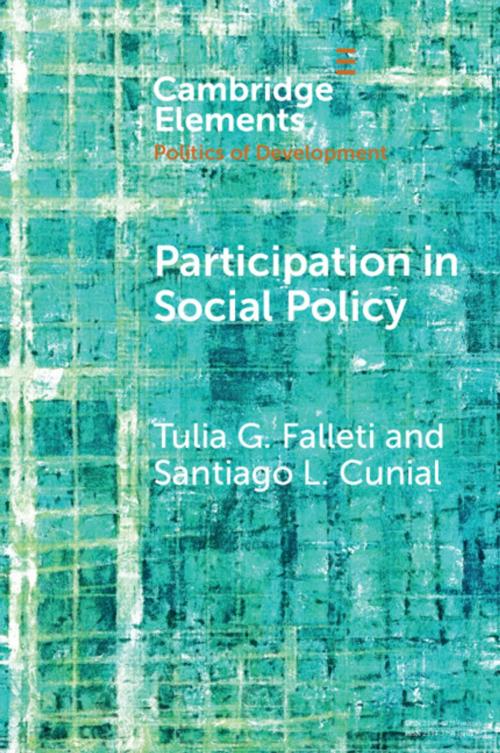Participation in Social Policy
Public Health in Comparative Perspective
Nonfiction, Social & Cultural Studies, Political Science, International, Foreign Legal Systems, Politics, History & Theory| Author: | Tulia G. Falleti, Santiago L. Cunial | ISBN: | 9781108650441 |
| Publisher: | Cambridge University Press | Publication: | November 30, 2018 |
| Imprint: | Cambridge University Press | Language: | English |
| Author: | Tulia G. Falleti, Santiago L. Cunial |
| ISBN: | 9781108650441 |
| Publisher: | Cambridge University Press |
| Publication: | November 30, 2018 |
| Imprint: | Cambridge University Press |
| Language: | English |
Health is a defining feature of life and its politics vital. Governments and international organizations have promoted community participation in public health since the late 1970s. However, we lack comparative studies of these participatory institutions in public health. This Element proposes a conceptualization of programmatic participation and distinguishes between two types, monitoring and policy-making. Falleti and Cunial review the origins of state-sanctioned institutions that mandate community participation in health in the two world regions with most advanced social welfare systems, Western Europe and Latin America, implying a comparative analysis of eleven health care systems. They argue that the origins of participatory institutions help account for the resulting types of programmatic participation. They delve deeper into the study of the experience of participation for policy making and analyze two hundred local participatory projects in public health. Falleti and Cunial focus their attention on the characteristics of participants, the role of health care professionals, and the role of local politics in the execution of community projects.
Health is a defining feature of life and its politics vital. Governments and international organizations have promoted community participation in public health since the late 1970s. However, we lack comparative studies of these participatory institutions in public health. This Element proposes a conceptualization of programmatic participation and distinguishes between two types, monitoring and policy-making. Falleti and Cunial review the origins of state-sanctioned institutions that mandate community participation in health in the two world regions with most advanced social welfare systems, Western Europe and Latin America, implying a comparative analysis of eleven health care systems. They argue that the origins of participatory institutions help account for the resulting types of programmatic participation. They delve deeper into the study of the experience of participation for policy making and analyze two hundred local participatory projects in public health. Falleti and Cunial focus their attention on the characteristics of participants, the role of health care professionals, and the role of local politics in the execution of community projects.















